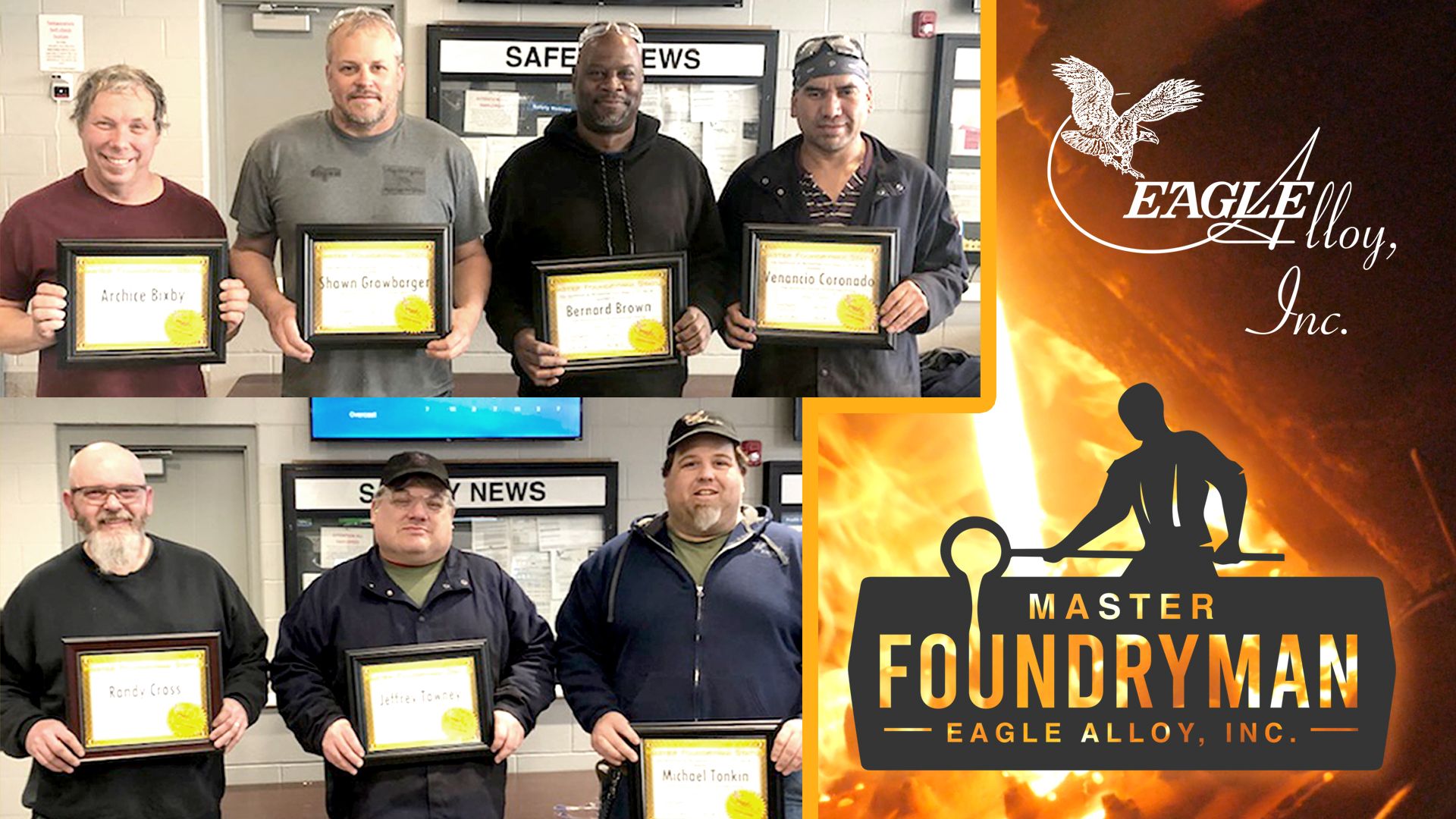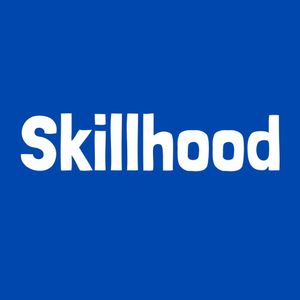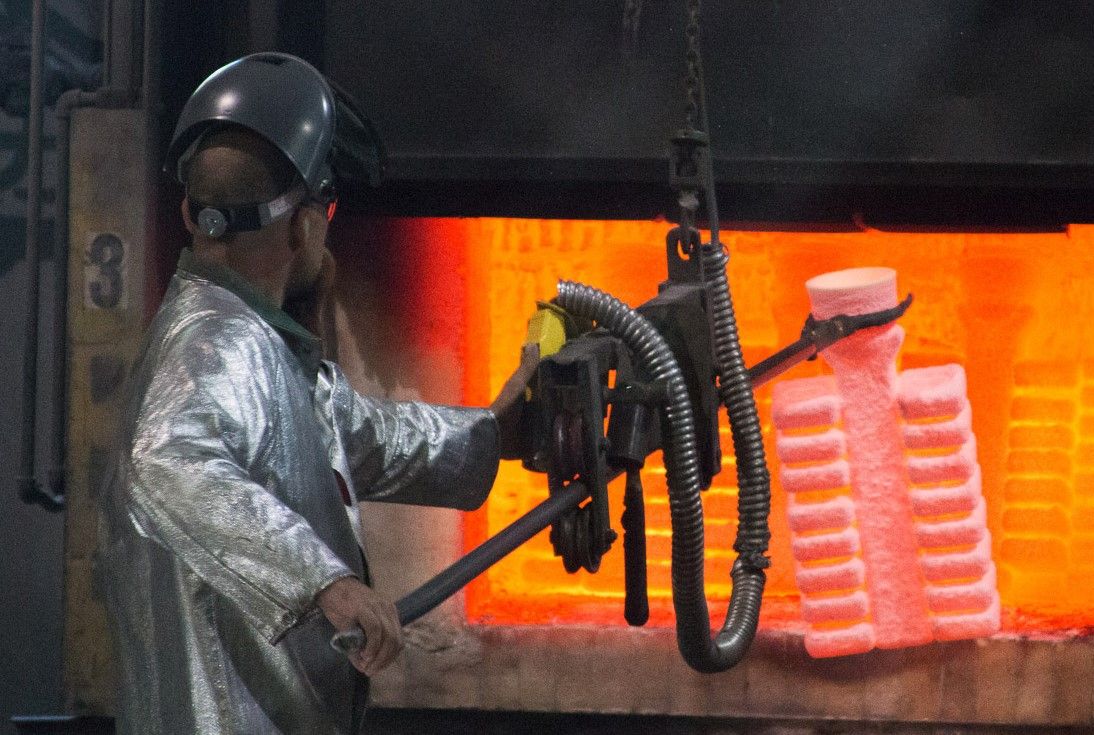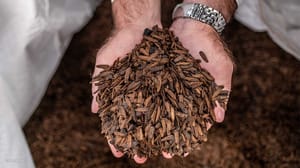Eagle Group is a pioneering CNC and metal casting company based in Muskegon, Michigan. They were one of the first foundries in America to utilize methane gas from a local landfill instead of natural gas to power their facility, and have since incorporated Lean Manufacturing and quality assurance using solidification simulation to predict casting defects. The Group is made of three companies: Eagle Precision Cast Parts, Eagle Alloy and Eagle CNC Technologies, a machining facility.
Eagle Precision Cast Parts
EPCP is the investment casting component of the Group, using robotics to automate two steps of the casting process and reach extreme precision of +/-.005 per inch. The first step involves the dipping cell and a robotic arm from American-made Fanuc, aided by lasers which allow the arm to "see" the surface of parts, and evaluate the consistency of slurry and the surface of sand-coated pattern trees.
This allows for constant feedback to flow from millions of data points to feed into the robotic system, enabling the robot to make real-time adjustments. These "laser vision eye" systems are then improved with advances to enhance their accuracy and practicality in investment casting.
A subsequent cell pairs another Fanuc pick-and-place arm and a RGS230 Revolving Table Grinder from AW Bell Machinery. Once an operator has placed dozens of parts on a holding table, the Fanuc arm is able to independently pick up and grind them using a revolving wheel. Thanks to the arms precise movements and reach, parts move through the grinder to completion quicker.
Eagle Alloy
EA makes ferrous and non-ferrous steel castings using shell molding accurate to +/- .030 per inch, and airset casting with medium tolerance up to +/- .060 per inch. Like EPCP, EA are also leverage automation, with a first robotic grinding cell introduced in 2018.
Shell molding manufactures steel castings by applying chemically bonded sand to a pre-heated pattern, creating a hard sand shell that acts as the cavity for the mold. Each sand mold is made of two halves and often cores to direct hollow parts of the casting. Once the mold is created, steel is poured in to create a finished product with high detail and consistency in a short lead time.
The airset molding line is used to produce low quantity production runs with a medium tolerance and accuracy of +/- .060 per inch, also useful for spinning up quick prototypes before a shell pattern is produced.
No-heat application is required for bonding sand into molds in the airset casting process, which is why it is sometimes referred to as "no-bake casting". Despite the absence of baking, this method can produce steel castings with superior surface finish and tighter dimensional tolerances compared to other casting techniques. This is because airset casting uses finer sand, requiring specific chemical additives for proper bonding. Further, steel castings created through the airset process exhibit exceptional consistency from one part to another, and surface defects are uncommon.
Eagle CNC Technologies
The Computer Numerical Control (CNC) section of the Eagle Group applies specific finishings to castings. Although investment casting and die casting are capable of producing parts that are close to net shape, their tolerance capabilities are still comparatively broad in contrast to CNC machining. CNC machined components can have critical surfaces with tolerances that range in the ten-thousandth-inch range, and they can achieve exceptionally smooth surface finishes through grinding, burnishing, and polishing.
Workforce development
Instead of threatening the jobs of employees, advances in technology have enhanced the working experience, deploying staff on complex tasks. Team members are trained to work with the robotic arm and ultimately produce a higher quality product for customers.
The new technologies have been embedded into the company's Success Coaching - on-site training which staff can even opt into taking individually in one-on-one sessions. A Master Foundryman certificate is also issued internally based on a number of productivity, quality, safety, teamwork and leadership.

At a compensation level, the extra capacity provided by robotics brings additional predictability to shift hours, task lists and overtime. This leans into the Eagle Group's corporate setup an incentive to increases to productivity - the company is uses an ESOP, meaning that ownership is transferred to employees over time. All employees are eligible to participate in the plan after they have completed 1,000 hours of service, with the entire ESOP vesting over five years.
For more information on jobs at the Eagle Group, visit eaglegroupmanufacturers.com and follow them on Twitter. In the meantime, use EG's educational resources to learn about Metal Strength, Metal Ductility and Metal Hardness.






Member discussion